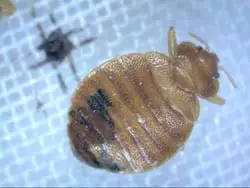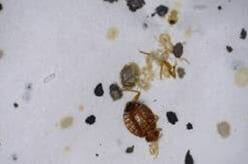How to Identify Bed Bugs and Their Control

Bed Bugs: A Persistent Pest
Bed bugs, which many once considered a forgotten nuisance from bygone eras, now thrive again in modern times, staging a dramatic resurgence over recent years. These tiny, wingless insects actively torment homeowners, delivering not only physical discomfort through their bites but also considerable emotional stress due to their persistent presence. Consequently, grasping how to spot these elusive pests and mastering effective control strategies become vital steps for anyone aiming to halt infestations before they spiral out of control or to eradicate them entirely once they take hold.
To begin with, identifying bed bugs demands keen observation, for their small size and secretive habits allow them to blend seamlessly into their surroundings. Homeowners must diligently inspect mattresses, furniture, and even wall crevices, searching for telltale signs like reddish-brown bugs, shed skins, or dark fecal spots. Meanwhile, understanding their behavior—such as their preference for nighttime feeding—further sharpens one’s ability to detect them. Then, when it comes to control, proactive measures take center stage. For instance, encasing mattresses in protective covers, applying targeted insecticides, or even enlisting professional exterminators can thwart their spread. Moreover, regular cleaning and decluttering shrink their hiding spots, while educating oneself about their habits empowers individuals to act swiftly and decisively. Ultimately, this blend of vigilance and action equips homeowners to reclaim their spaces from these unwelcome invaders.
What Are Bed Bugs?
Bed bugs are a species of parasitic insects notorious for their reliance on human blood as their primary source of nourishment. Whereas scientifically classified under the family Cimicidae, these tiny pests exhibit a distinctive reddish-brown hue, which often darkens after feeding. In terms of size, an adult bed bug is roughly comparable to an apple seed. Measuring approximately 4 to 5 millimeters in length, though their flat, oval-shaped bodies can swell considerably once engorged with blood. This small stature allows them to maneuver with ease into the tiniest of hiding spots. Moreover, making them particularly challenging to detect and eliminate.
These insects are predominantly nocturnal. Emerging under the cover of darkness to seek out their unsuspecting hosts—typically humans—while they sleep. This nighttime activity aligns perfectly with their parasitic lifestyle, as it enables them to feed undisturbed on exposed skin. This often leaving behind itchy, red welts as evidence of their presence.
During the day, bed bugs retreat to an array of concealed locations. Demonstrating a remarkable ability to tuck themselves away in the smallest cracks, crevices, and seams. Common hiding spots include the folds of mattresses, the joints of box springs. Also the crevices of bed frames, and even within upholstered furniture or behind peeling wallpaper. Their adaptability to various environments, coupled with their elusive nature, has made bed bugs a persistent nuisance. Especially in households, hotels, and other dwellings worldwide.
Signs of a Bed Bug Infestation

Several signs can indicate a bed bug infestation:
- Bites: Bed bugs often bite in a zigzag or linear pattern, leaving itchy, red welts on the skin. However, not everyone reacts to bed bug bites in the same way.
- Bed bugs: You may see live bed bugs or their eggs and nymphs, especially in the seams of mattresses or furniture.
- Shedding: Bed bugs shed their skins as they grow, and you may find these shed skins on your bed or bedding.
- Dark spots: Bed bug feces, which look like small, dark spots, may be visible on mattresses, bedding, or furniture.
- Musty odor: A musty odor can sometimes be associated with a large bed bug infestation.
Control Measures for Bed Bugs
Eliminating a bed bug infestation can be challenging and often requires a multi-faceted approach. Here are some common control methods:
1. Liquid Treatments:
- Professional application: A licensed pest control professional will use specialized insecticides to target bed bugs in their hiding places.
- Thorough treatment: The treatment should focus on areas where bed bugs are likely to hide, such as mattresses, box springs, bed frames, and furniture.
- Follow-up treatments: Multiple treatments may be necessary to eliminate a severe infestation.
2. Heat Treatments:
- High temperatures: Heat treatments involve raising the temperature in a room or building to a level that kills bed bugs and their eggs.
- Specialized equipment: This method requires specialized equipment and is often best handled by professionals.
- Effective against all life stages: Heat treatments are effective against all life stages of bed bugs, including eggs.
3. Fumigation:
Pros of Using Vikane Gas for Bed Bug Control
Vikane gas, also known as sulfuryl fluoride, is a powerful fumigant commonly used for bed bug control. Here are some of the key advantages of using Vikane gas:
- High Effectiveness: Vikane gas is highly effective against all life stages of bed bugs, including eggs. This ensures a thorough elimination of the infestation.
- Deep Penetration: Vikane gas can penetrate into cracks, crevices, and hidden areas where bed bugs often reside. This helps to target the infestation comprehensively.
- Rapid Results: Vikane gas can provide quick results, often eliminating bed bugs within a single treatment.
- Minimal Residue: After treatment, Vikane gas dissipates completely, leaving no harmful residue behind. This makes it safe for people, pets, and electronics.
- Suitable for Sensitive Items: Unlike some other treatments, Vikane gas can be used in homes with sensitive items like antiques or electronics without causing damage.
- Effective Against Resistant Strains: Bed bugs can develop resistance to certain insecticides. Vikane gas, however, has not been shown to have any resistance issues.
It’s crucial to understand that only licensed professionals should use Vikane gas because it poses potential health hazards. These experts must follow proper ventilation practices and safety precautions to protect occupants and the environment effectively.

The Importance of Professional Pest Control
While DIY methods may seem tempting, it’s often more effective and efficient to hire a professional pest control company to deal with a bed bug infestation. Professionals have the experience, knowledge, and specialized equipment to accurately diagnose and treat infestations.
Here are some reasons to consider professional pest control:
- Accurate identification: Professionals can accurately identify bed bugs and their hiding places.
- Effective treatments: Proven methods and products specifically designed for bed bug control are used.
- Preventative measures: Professionals can provide tips and recommendations to help prevent future infestations.
- Peace of mind: Knowing that a professional is handling the problem can give you peace of mind.
Preventing a Bed Bug Infestation
While it may not be possible to completely prevent bed bugs from entering your home, there are steps you can take to reduce the risk of infestation:
- Inspect second-hand furniture: Carefully inspect any second-hand furniture before bringing it into your home.
- Be cautious in public places: If possible, avoid sitting on upholstered furniture in public places such as hotels or movie theaters.
- Wash bedding regularly: Wash your bedding in hot water and dry it on high heat to kill any bed bugs or eggs.
- Vacuum regularly: Vacuum your bed, furniture, and floors regularly to remove bed bugs and their eggs.
If you suspect you have a bed bug infestation, don’t hesitate to contact a reputable pest control company for assistance. Early detection and treatment can help prevent the infestation from spreading and becoming more difficult to control.